Turow writes clearly and thoughtfully about the ultimate punishment. There are no facile discussions or conclusions here—his assessments are well-considered. Highly recommended.
Turow writes clearly and thoughtfully about the ultimate punishment. There are no facile discussions or conclusions here—his assessments are well-considered. Highly recommended.
Interesting plot and sympathetic characters, in a setting that not often seen (Ireland during WWII). However, too much telling rather than showing, and one of the main characters is inconsistent. Overall, though, a comfortable read for a snowy winter night (or, in the other hemisphere, a good beach read).
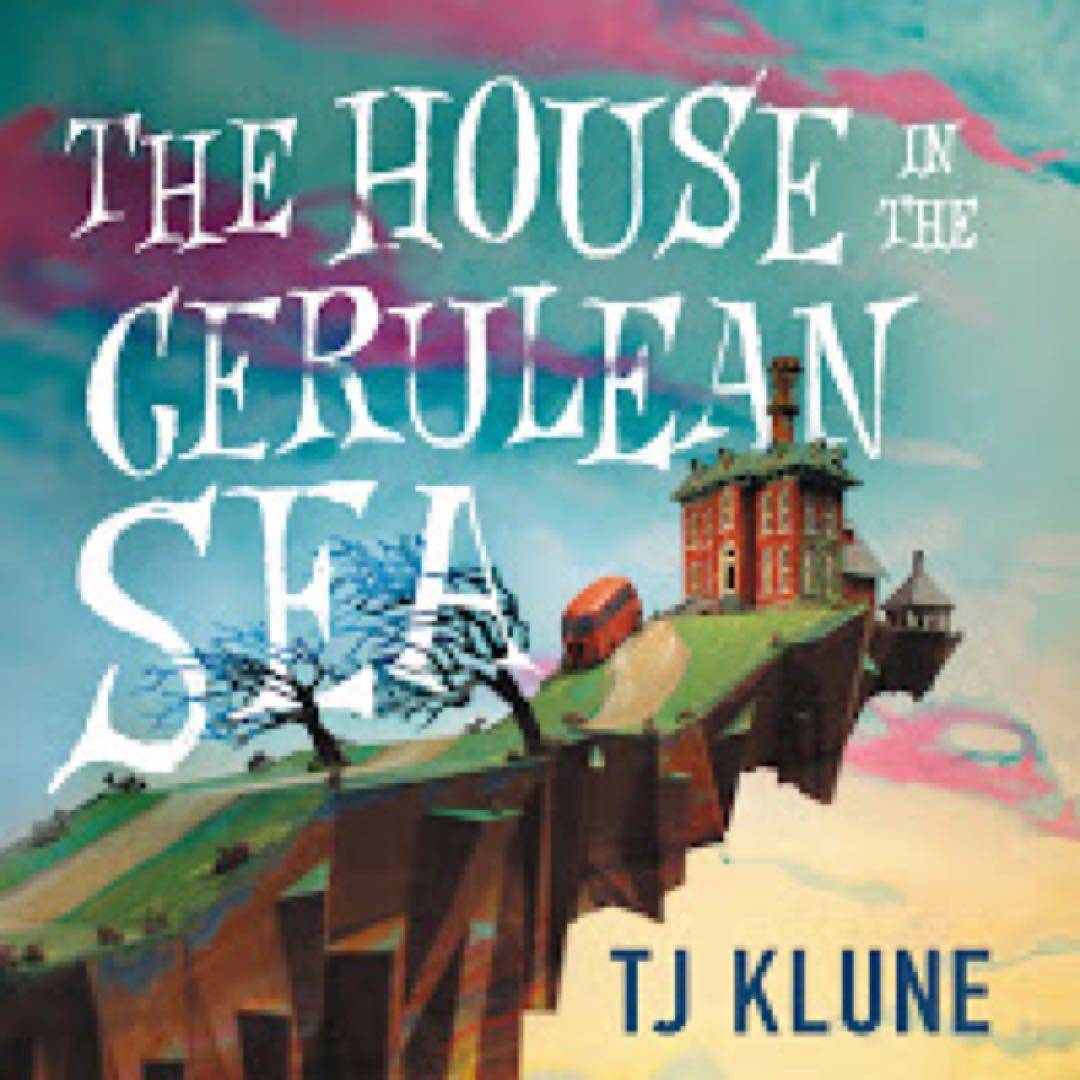
I highly recommend this book! It‘s magical, thoughtful, sneakily funny, and has a very sweet love story. Klune makes his points about prejudice and exclusion delicately but clearly. Also, his language (what a poetry prof called “the music”) is lovely. Not to mention it‘s a page turner!
Excellent! Dubler examines the theology of prison abolition from a variety of angles. He emphasizes that most theologies call for the release of prisoners, for mercy, and for treating others as we would be treated. He also notes that a better way to deal with crime is through prevention—funding the mental health care, SA treatment, and education (for starters), rather than spending those funds on more and larger prisons. Recommended
Having lived in Ontario during part of this time, and having friends involved with this, this book hit home. The police seemed to slough off what the community knew and their superior attitude cost lives. Once they got to work, they did a good job. Well written, good sense of place. My only quibble is the way Ling centers himself; it‘s one way to tell a story, just not my preferred structure for true crime. Recommended.
Imaginative telling of the story of Jesus‘ wife—not in the Dan Brown mold, but carefully placed in the political and religious matrix of the day. Ana is a compelling character. I wish there was a rating between so-so and pick, however—I enjoyed it, Kidd is a good writer, etc—but pick, to me, should be reserved for the very best books. More than so-so, but not a pick.
Meh. The author draws interesting parallels between Martin‘s work and historical events, but if you have any familiarity with European history, you know this stuff. Also, where have all the copy editors gone? Grammatical errors he‘s too fond of semicolons), misspellings (“poll” when it should be “pole,” “grizzly” in place of grisly,” etc.). Not at all deep, but useful for pointing out Martin‘s inspiration/sources.
Fascinating history of the resistance of two women on the island of Jersey during WWII. Well-written, consistently absorbing. Jackson is very good at understanding and explaining a variety of contexts (Bohemian/gay Paris in the 20s and 30s, occupied Jersey, Jersey itself), and is very respectful of Lucy and Suzanne‘s sexual and gender identity. Highly recommended.
Another wonderful book by Emma Donoghue. Dublin, 1918, the Great Epidemic. A nurse cares for her patients (pregnant women with influenza) over the course of three days. It‘s a quiet tale, for all the potential action in the setting; but Donoghue‘s prose is so compelling and moving, you become invested in these women. Loved it.
Very well-written. The author doesn‘t hide her flaws (or her father‘s). It‘s an unflinching look at what has got to be one of the most dysfunctional families in the US. From Grandfather Fred and Grandmother Mary, to the second cousins, the lack of empathy and rapacity of this clan is horrifying. I didn‘t read it for salacious details (there‘s nothing new here); but the writer lays out her hypothesis and insights with clarity.
What an amazing book! I am always enriched by Donoghue‘s books—plots, characters, setting, themes. The unusual narrator here put me off at first—like the first 25 pages, and then I was all in with Jack! This is the first book in a long time to grip me so tightly that I rearranged my schedule so I could read it! And our current stay-at-home situation (although of course not nearly on a par with Jack and Ma‘s plight) gives a certain sympathy!
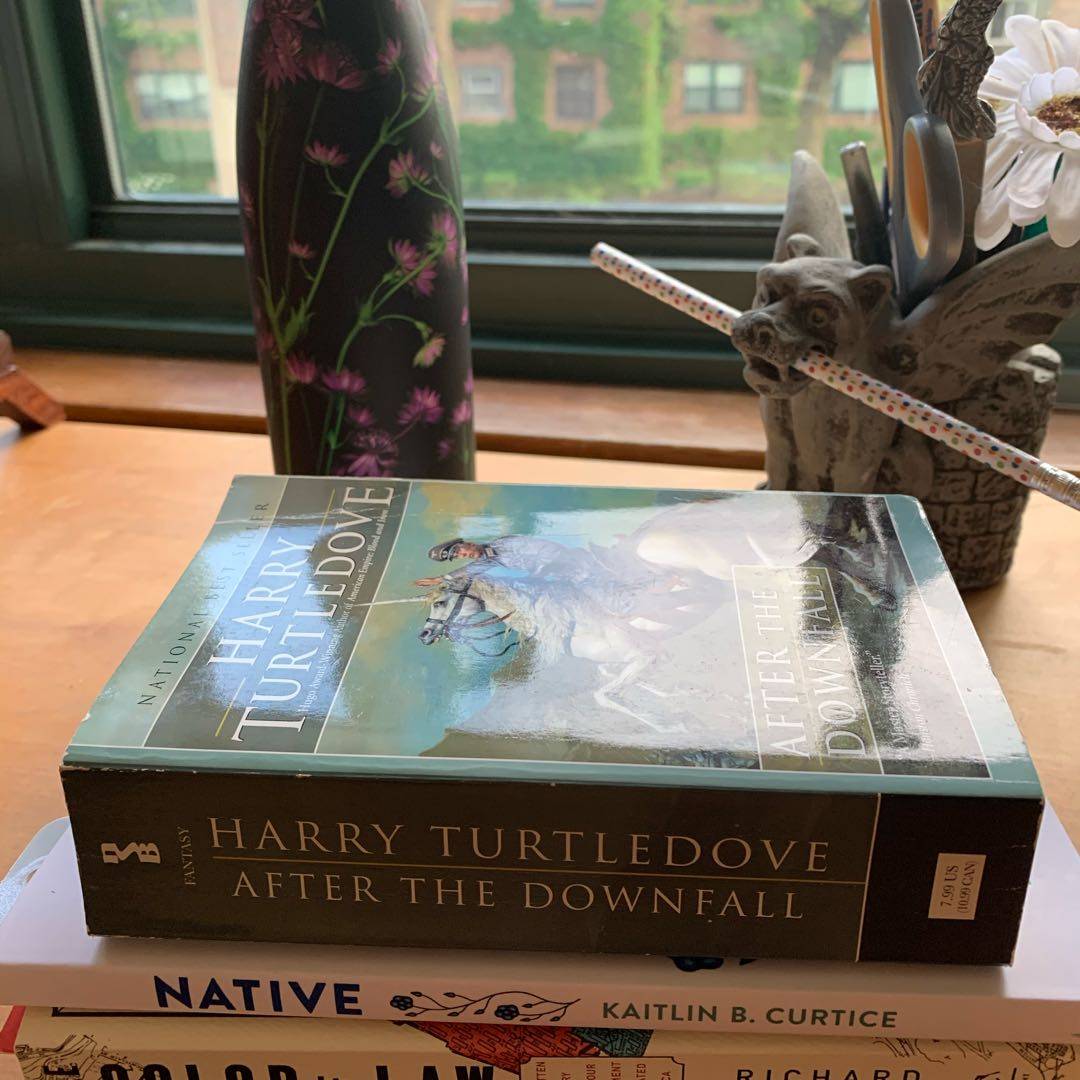
Looking forward to my weekend reading already!
Buting was one of the defense attorneys for Steven Avery, the subject of The Making of a Murder. Here he lays out the narrative behind the documentary, clearly and with explanations of the legal strategy and reasoning. Well-written and heartbreaking for everyone. I haven‘t seen TMOAM, so it was all news to me. Highly recommend.
I love the subjects Rosen writes about, and her style. I though she did a great job with the plot and characters in this one. My gripe is the constant references to specific designers and descriptions of the opulence. After the first 50 pages, it felt—overwhelming. There are ways to emphasize wealth but that bit was overdone. Otherwise, enjoyed it very much!
Junger examines the value of connections and the loss of them in modern Northern European society. He pulls together stories of returning soldiers across time, Europeans captives of Native Americans who chose to stay with them, and the value of shared crises. He makes the case that society should work to strengthen connections rather than weaken them (making survivors victims rather than heroes, lack of tight communities, & increasing isolation).
Fascinating account of the Greely Expedition to the Arctic (1881-1884). Levy strikes a nice balance between details and conciseness. I raced through the last third, desperate to know who (if anyone) survived and how. Levy also gives each person a real character, based on his readings of their writings/diaries/expedition accounts.
Clear and damning history of prisons in the US from the colonial period to the present. Christianson covers a broad sweep of history, so this is a foundational or basic text, but a good place to start.
Highly enjoyable! What might happen if fictional characters could be “read” into life? We all have our own versions of those characters—some positive, some not so. How would the characters feel about being alive? What if one of them wanted to take over the world?
Divide and conquer—or, cutting off your nose to spite your face.
I can‘t quite put my finger on why this book fell flat for me. The idea is good—exploring your own painful past via a parallel story—And I love the way she writes. The topic is disturbing—child sexual assault and murder—but I read a lot of crime. Maybe the structure? It just never quite jelled for me.
In the style of Tales of the City, Makkah has written the story of Chicago‘s gay community from the 1970‘s to the present. While I enjoyed it, and I think she writes incredibly well, she left out a big part of the story—the lesbians and bisexual women who cared for so many of those who lived (and died) with HIV/AIDS. She obviously could not cover every story, but I think this is a significant omission. Otherwise, I loved it! Well worthwhile.
Beach read. Engaging and interesting enough to keep reading, but no literary depth. Good profile of a sociopath, though...and a narcissist, enough to trigger memories of a past relationship I had with one of the latter.
Really enjoyed this. Gael puts flesh on the bones of what we know about Charlotte and Arthur, without going too far into fantasy or romance.
I really wanted to like this book/series. It‘s one of my favorite periods of history, and the idea of a surviving son of Henry VIII is fascinating. Unfortunately I could not engage with the characters, none of them rang true, and OMG was the action slow. Ultimately, I just couldn‘t accept it as a possible alternate history, and had to quit.
A bit slow to get started, but just as good as the first. Massey is a great mystery writer, I can‘t wait for #3 in the Perveen Mistry series!
I love, love, love GG Kay, and this is one of his best. His writing is so beautiful and the characters engaging. I preordered it, knowing how much I like his books, and I am not sorry! Highly recommended.
This actually falls somewhere between a pick and so-so—it was good, but not stellar. I liked Dionne‘s use of the fairy tale, and her taking on the challenge of an unconventional narrator. She didn‘t succumb to stereotyping, either. But—-I wish she had explored the mother-daughter relationship more, and I wanted to understand her marriage better, too. Definitely not a waste of time, but not outstanding.
I have tried two of Lopez‘s books and just can‘t get hooked. His writing is beautiful, but it doesn‘t pull me in enough to commit to the whole book. I enjoy travel writing and geography, so you‘d think it would be a natural, but no...
The authors not only tell the stories of miscarriages of justice, but lay out the cases against Hayne and West clearly and definitively--and explain why nothing can be done. Expert testimony is an contested area of law/evidence, for reasons that they explain well. Well-written, exhaustively researched, highly recommended.
Amazing! O‘Meara presents the story of a talented woman few know about, sadly—Milicent Patrick, artist, designer, and creature creator in the heyday of Hollywood‘s monster movies. She created the Creature from the Black Lagoon—but misogyny was even more prevalent in that time, and she didn‘t receive the proper credit. O‘Meara draws parallels to today‘s media world, and tells her own story of research. She‘s a fantastic writer, btw.
Fascinating look at Egyptian royal women who ruled ancient Egypt. Cooney points out parallels and differences between them and later female rulers, and speculates that they were able to rule because the ruling class realized they were the best option for maintaining stability.
Fantastic. Trying to find time to read #3 in this trilogy. Barker keeps up the quality of his storytelling—he‘s not just stringing things along. Girton has become one of my favorite fantasy characters, and I am willing to bet he will become equally dear to you.
Outstanding. Gilliard builds a solid case for Christians to support people who are incarcerated-advocate, work, visit them, not spiritualize them or Jesus‘ references to prisoners. He also points out how US Christians have failed incarcerated people through narrow-minded theology and an unwillingness to show love, not to mention denying God‘s love and grace for all people. Highly recommended.
Boyden's prose is beautiful, plot good, characters well-drawn-but the controversy over his claim to Metis heritage, and thus the foundation on which this novel rests, left me unsettled. It's a very dark story, by its very nature; I am not delicate but the detailed descriptions of torture were unnecessary after the first couple. Still, I recommend it as one way to understand the complicated relationships between 1st Nations people & Europeans.
Rev. Dr. Gafney will change the way you read/study/preach Scripture. And thank God for that! Her work opens up a whole new dimension for those of us who are non-melanated (i.e., not people of color) women--not to use, because it is not our heritage, it is not ours to use--but to help us to understand, to shed light on what is happening, to see what translators have obscured for centuries behind racism and misogyny. Highly recommended.
In a rare miscalculation, I recently found myself with a seven-hour airport wait and 2.5 hour fight, about to finish a book, with no more reading material. Imagine my panic! Luckily, I found Beasts in the newsstand. Beasts is indeed extraordinary--magical, absorbing, tender (both in tone and in what it will do to your heart), funny and fascinating. Achingly beautiful, lovely characters; perfectly plotted. Read it.
Loved this and looking forward to the next book! Harkness creates real characters, knows her history, wine, herbs, and Oxford! She creates enough mystery to tantalize, but reveals enough to satisfy--while arousing your curiosity even more. Diana and Matthew are likable, as are Ysabeau and Marthe and Sarah and Em and--well, many of the creatures. I am hoping to meet some allied humans, though...
Farrell tells an honest story of a great man's life--Darrow was indeed "defender of the damned," as Lincoln Steffens said, of the marginalized or outcast. Ahead of his time too--feminist, anti-death penalty, free love advocate, prison abolitionist, anti-fascist, pro-labor, agnostic, pro-science. Also his own worst enemy. Readable; heartbreaking at the end. His memorial today is a bridge in Chicago's Jackson Park where he practiced his speeches.
Loving this book! The historical detail, the characters (real and imagined), and Chicago itself--wow. Rosen doesn't sugarcoat a thing, and yet her characters are all likable, especially Leah and Red. I'm reading it when I should be reading other things...
Alarming and necessary reading. I'm 45 (ha!) pages in; parallels are not predictions, but as Madame Albright says, they can be a warning. History is our friend.
Excellent! I love finding a new series; I can't wait to read the next one (Blood of Assassins). The character of Girton is extra fine--his disability doesn't define him, and isn't even remarked on that much, nor does it prevent him from doing what needs doing. I also enjoyed the casual equality--some soldiers were male, some female; some people preferred the company of their own gender; neither was, again remarked on; that was just how it was.
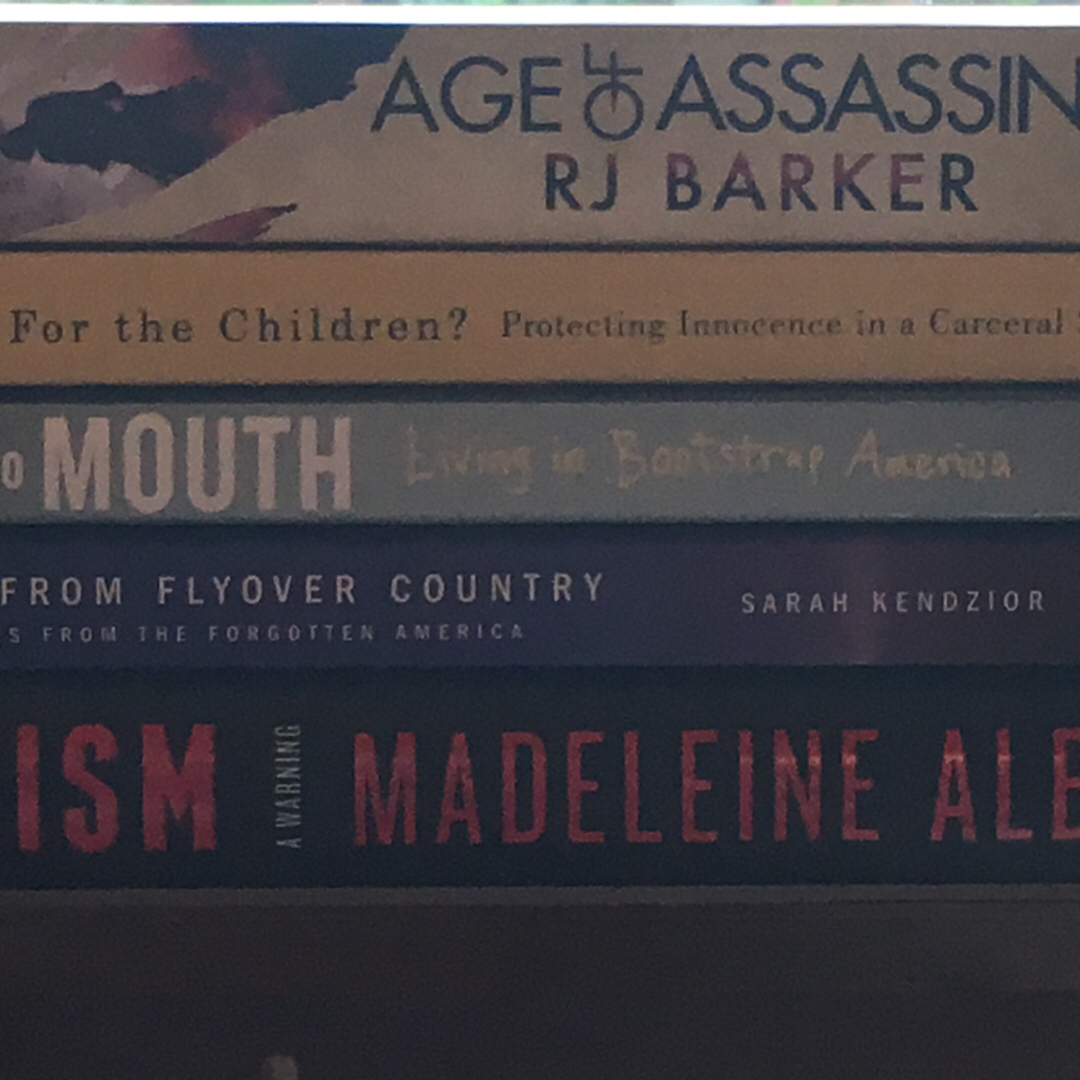
Weekend reading options—where to start? Probably with Fascism, then move on to Assassins, followed by...📚
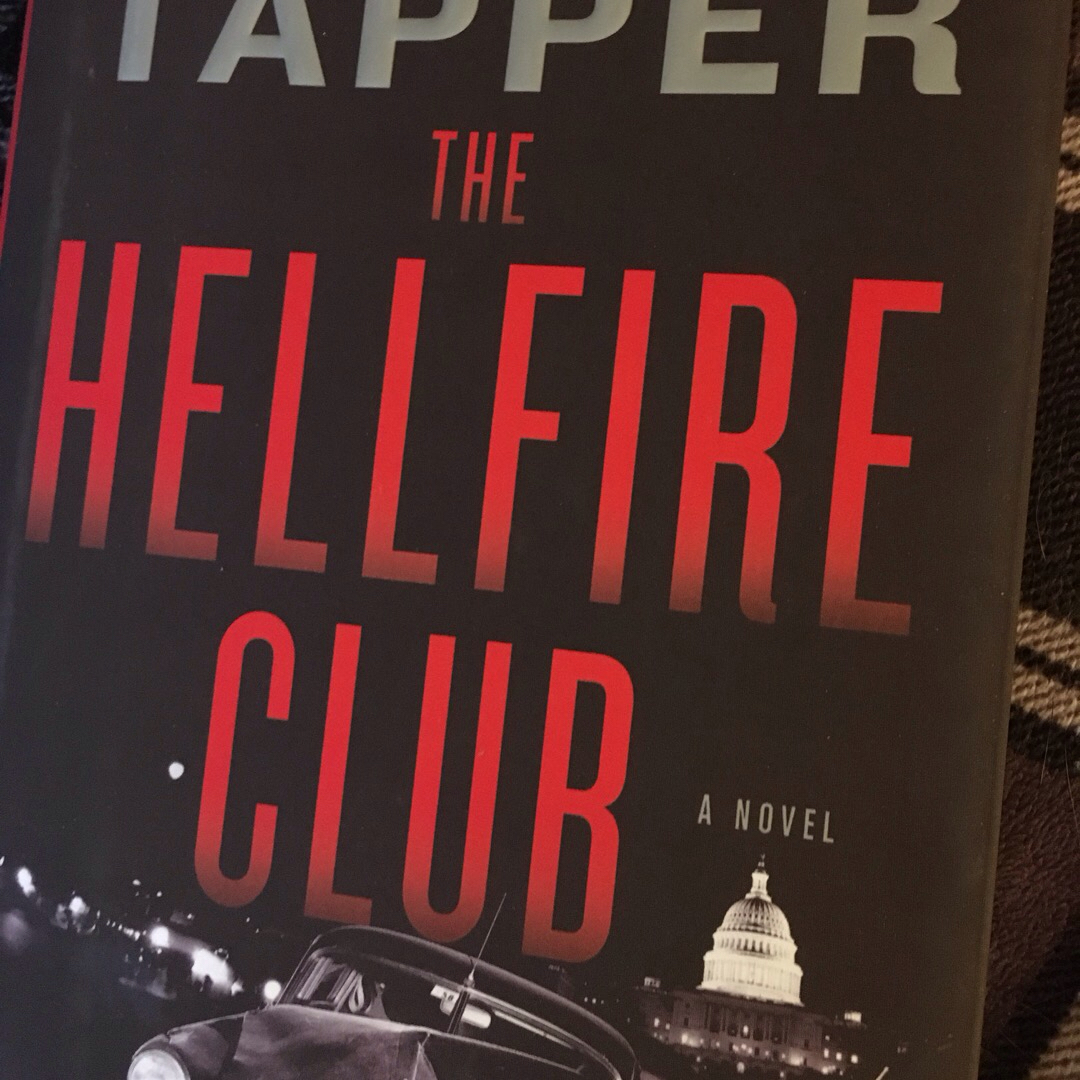
Good read! A few anachronisms, but otherwise good flavor of the time and place. I predict a big beach read this summer. Tapper is also saying a lot about the current political scene. Also, a warning--do not begin this in the evening, you might not get to bed that night!
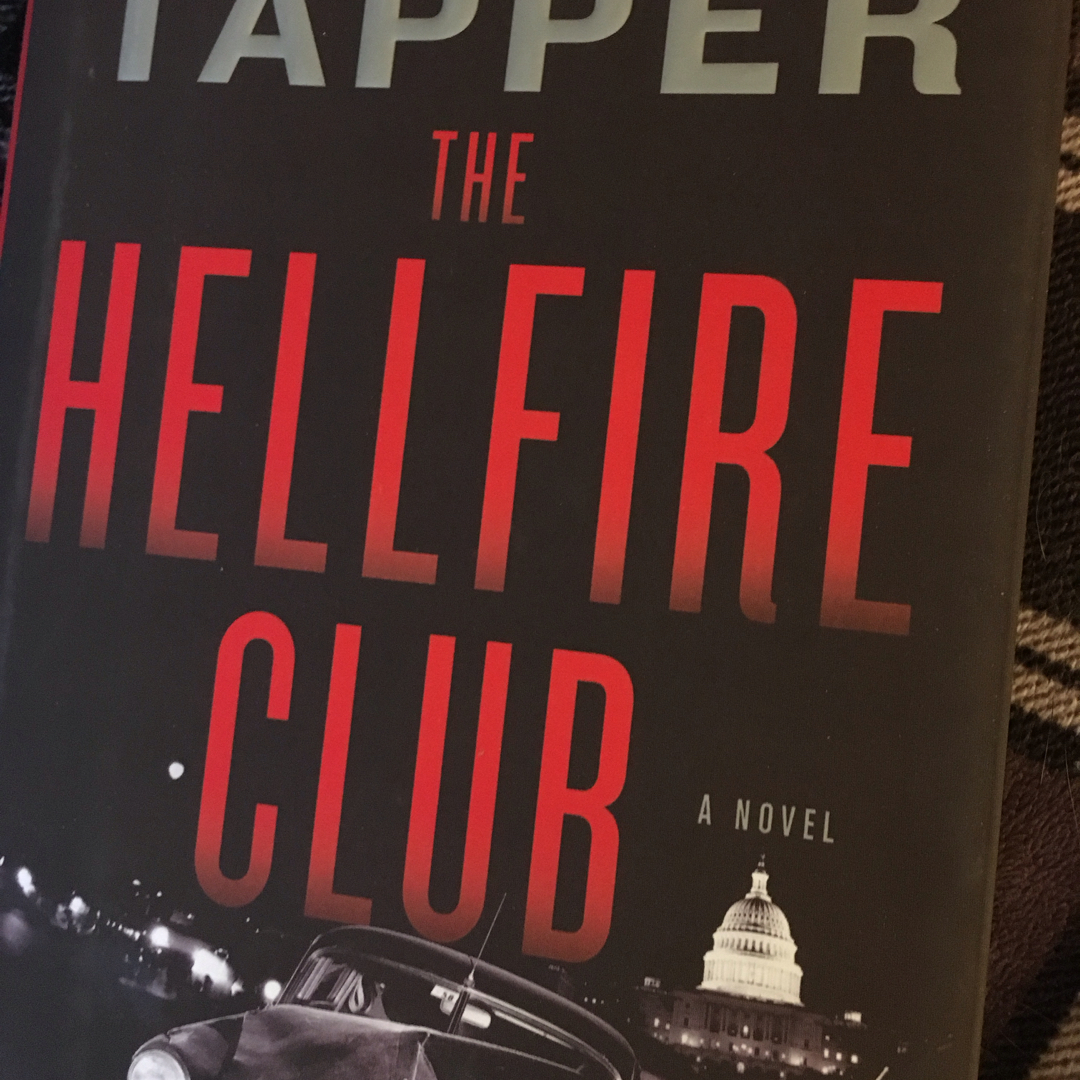
Tonight and tomorrow's reading. #DayOff #WashingtonGeek
While the book was mostly interesting, Schechter dilutes the interest by including several other murders that took place nearby without drawing a clear connection between them. There was no other real tie--young(ish) women, murdered, in or near Beekman Place, with most attention given to Robert Irwin (the "mad sculptor" of the title)--but why include the others? Irwin's story is compelling on its own, and would have been enough.
“Let bygones be bygones” is not a legitimate approach if we wish to call ourselves a constitutional democracy.
By failing to recognize that we now live with the severe, enduring effects of de jure segregation, we avoid confronting our constitutional obligation to reverse it. If I am right that we continue to have de jure segregation, then desegregation is not just a desirable policy; it is a constitutional as well as a moral obligation that we are required to fulfill.
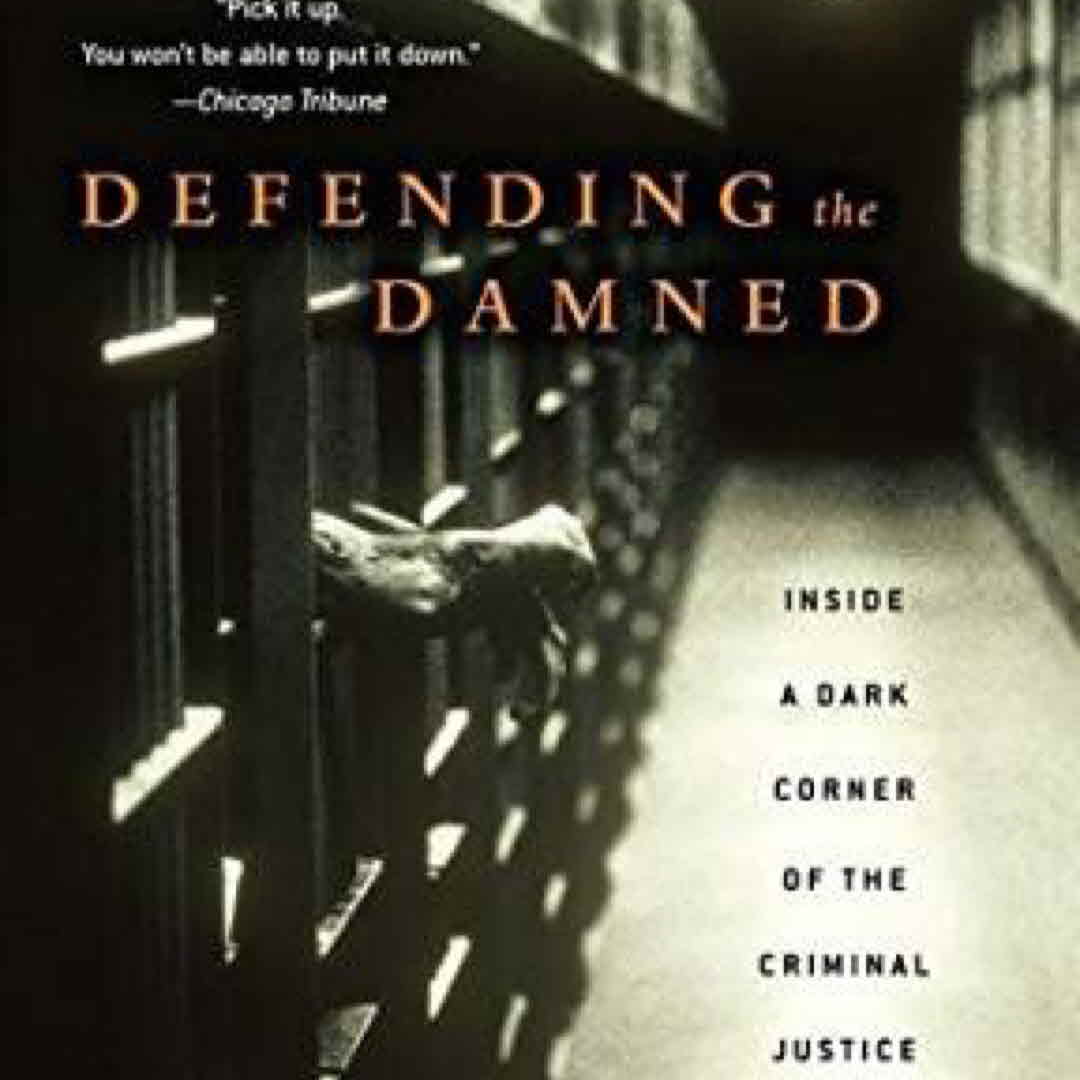
Very good account of one division of the Cook County Public Defender's Office. Well-balanced and fair.
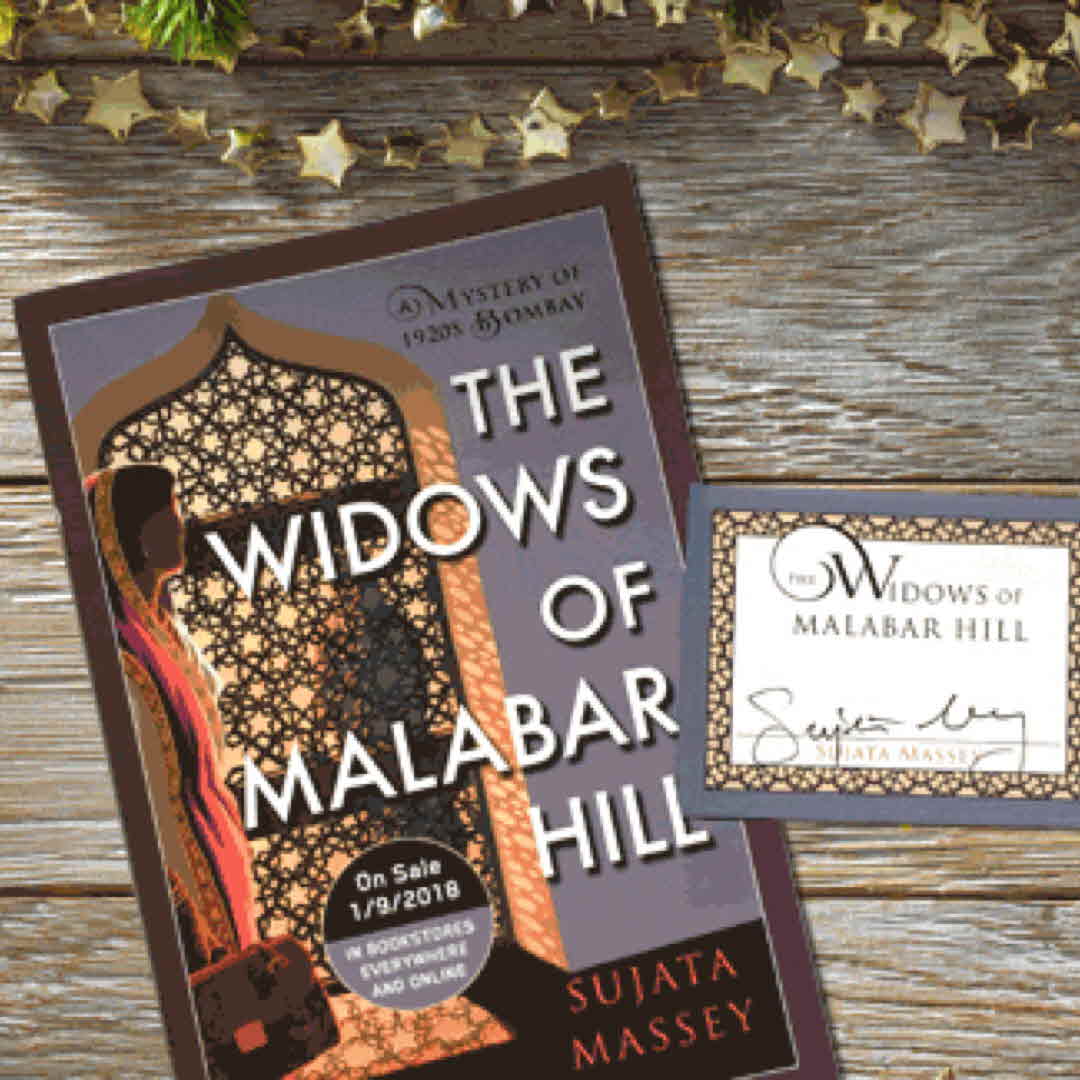
Looking forward to more in this "projected series" of mysteries set 1920s Bombay (as it was then called in English). Great characters, well-researched, interesting plot--no jarring missteps that I noticed at all (and I am picky!). Especially interesting to me is that the main character and her family are not English, Hindu, or Muslim, but Parsi--a strand in Indian multiculturalism that we in the West don't hear/know much about. Well worth a read!
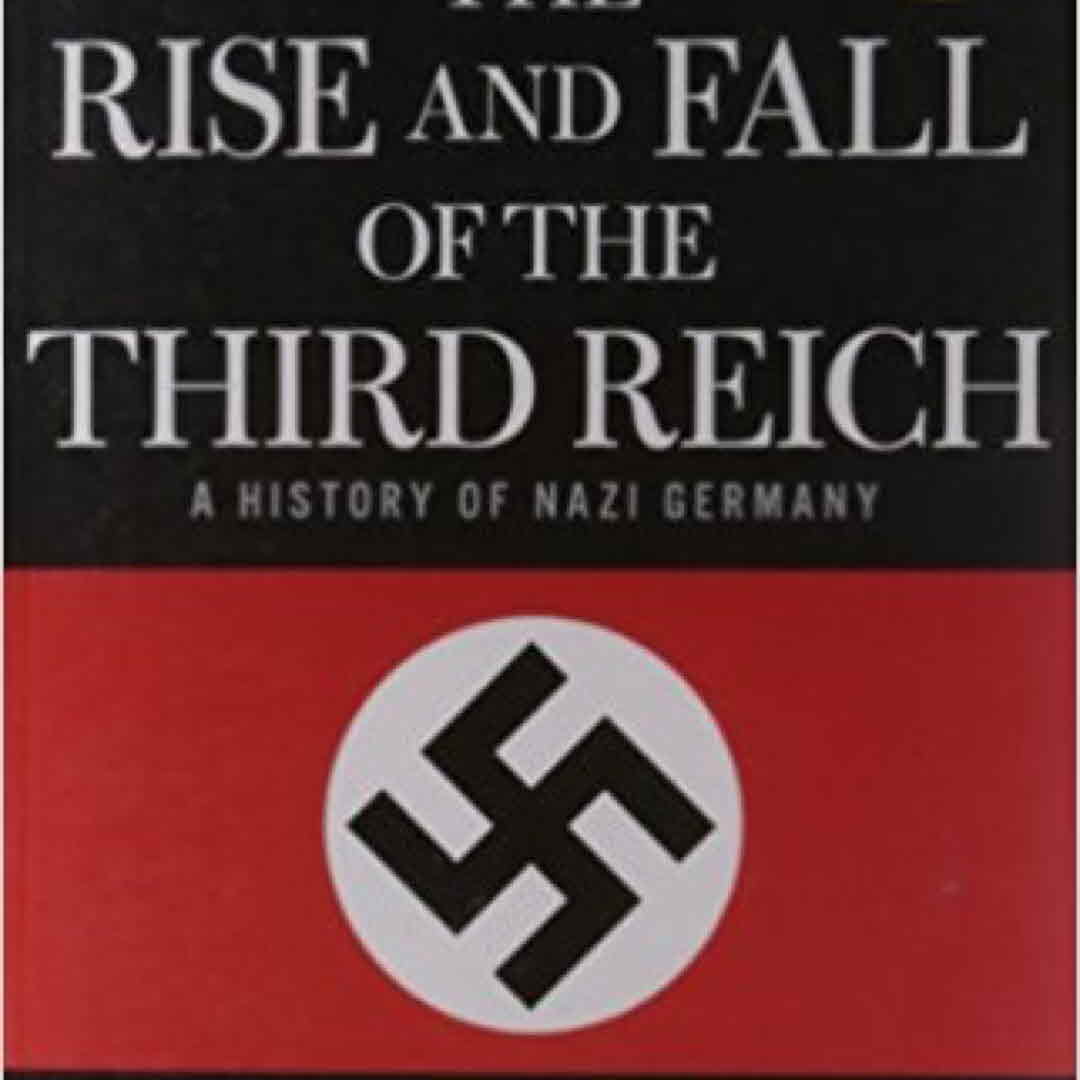
"Though Hitler was to forget it when he came to power in Germany, one of the lessons of his Vienna years... is the futility of a political party‘s trying to oppose the churches. 'Regardless of how much room for criticism there was in any religious denomination...a political party must never...lose sight of the fact that... a purely political party has never succeeded in producing a religious reformation.'" But pol. parties have co-opted churches.